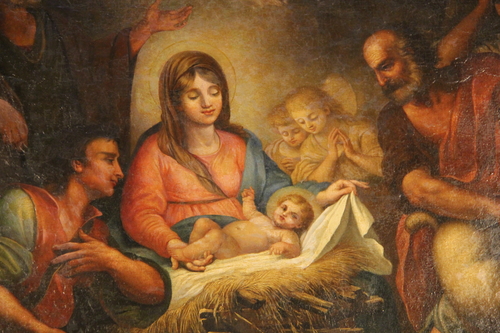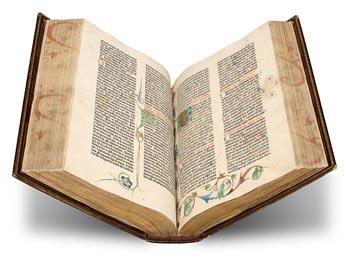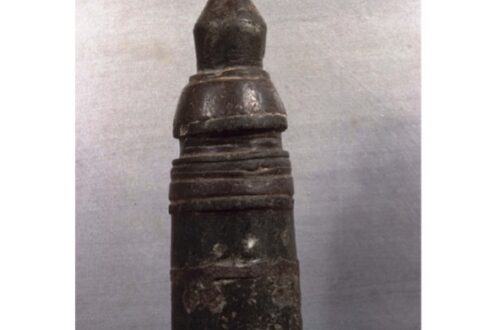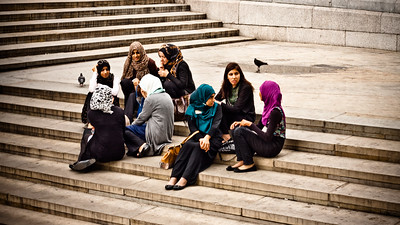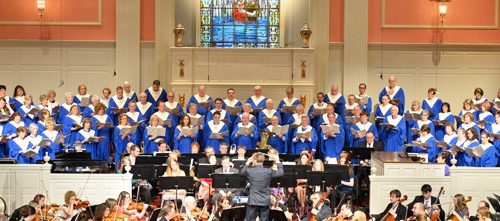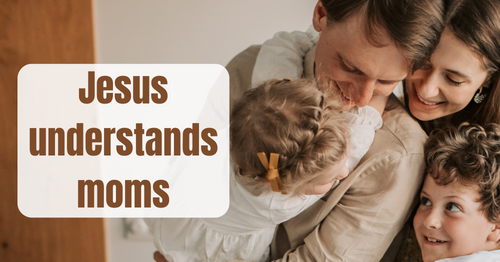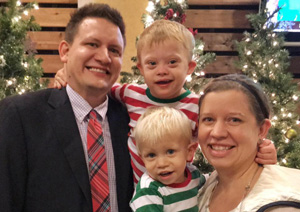-
Reclaiming Biblical Truth about Mary, the Mother of Jesus
With apologies to those who have always held her in high regard, I’ve always felt a bit squeamish about focusing on Mary, the mother of Jesus. I grew up Protestant in a largely Roman Catholic area of the Southwest. Even today, while religious affiliation has diminished, in my hometown of El Paso, Texas, 43.2% identify as Catholic and 42.3% identify with no religion. The remaining 14.5 per cent of residents are divided among Evangelical Protestants, mainline Protestants and other groups. As a Methodist girl curious about Mary in my largely Catholic community, I noticed she was frequently adorned with a halo in many paintings and icons. I was guilty of…
-
A fresh perspective on Deborah by Barb Haesecke
Our first-born daughter is a born leader. She came out of the womb with Director of Activities stamped on her forehead! She was smart, analytical, creative and passionate. She loved big projects and The Big Picture. (Still does!) On many a day, I just shook my head and said, “Lord, I don’t quite know what to do with her!” But as she headed off to college, I saw her blossom. She joined ROTC and after graduation spent five years serving our country…
-
Fresh perspectives on Biblical Women–The Woman at the Well
Who do you immediately picture when you think of the woman at the well in John 4? Do you see a sleazy woman with overdone makeup, bangles and spangles, one of those morally loose floozies with a weakness for the wrong kind of men? When you meet her in heaven, how will you feel if she's actually a woman of integrity, courage, insight, and served Jesus as an evangelist? Of course, she was a sinner just like all of us. But we must be careful not to disparage anyone's character before we know the facts. What does John 4, as well as first century social customs, reveal about her character? …
-
Would Jesus turn #MeToo into #UsTwo?
I came home pumped!! My friend Barb led our mixed Sunday School through a fresh look at the leadership partnership between Deborah and Barak (Judges 4 and 5) as part of an eight week series entitled "Fresh Perspectives on Women of the Bible." The week before, we saw Jesus praise the woman at the well for evangelizing her Samaritan village, a people group the disciples formerly discounted as unworthy of salvation (John 4). For the first time, these two women jumped off the page in living color as role models for other women to emulate. We set aside the over-sexualized interpretations too often imposed on the text and let…
-
Vindicating the Vixens
Vindicating the Vixens (Kregel Academic, forthcoming, Octobre 2017) is the work of a diverse team of sixteen male and female theologians who’ve partnered to take a second look at vilified and marginalized women in the Bible. The church has often viewed women’s stories through sexist eyes, resulting in a range of distortions that cause us to miss what we should actually see in the text. In this panel discussion three theological professors and three seminary graduates talk about the women they revisited. SaveSave SaveSave
-
“She Was a Pretty Good Prophet…for a Woman”?
A seminary-class grader once wrote this comment on an assignment turned in by the female who would go on to become his school's first female professor: "Your questions are really insightful for a woman." Recently one of my female seminary students told of feeling she did not matter to God. She described seeing herself as the less-favored one as compared with men. She said she constantly grapples with questions, such as, ‘Does God really love women the way he loves men?’ ‘Does God see women as inferior to men?’ and ‘Why did God allow women to be treated so poorly?’” Some of her questions stem from how she has heard…
-
Nain: The Perfect Setting
Like the mansion “Downton Abbey,” the setting itself played such a role in Shunem’s story that it functioned almost as an independent character. Shunem’s people took pride in its heritage: About 800 years before Christ, Elisha had brought a woman’s dead child back to life here. Elsewhere some years before that, Elisha’s mentor, Elijah, had restored to life a widow’s only son. And afterward, the biblical text records, “Elijah gave him to his mother" (1 Kings 17:23). So Elisha’s miracle at Shunem was not the first time a prophet had raised a woman's child, but it was certainly the last. Just on the other side of Shunem’s hill, assuming we…
-
Was Abigail Right to Go Behind Nabal’s Back?
One morning after I had taught a women’s Bible study on the life of Abigail, wife of Nabal, a woman hustled over to me, elbows swinging. Seeing her body language, I braced myself. Her argument about my teaching went something like this: “You're wrong! Abigail was most definitely not righteous. By taking matters into her own hands, she shows what happens when a wife steps out from under her husband’s ‘umbrella of authority.’ If Abigail had submitted to Nabal rather than intervening, David would have felt guilty for killing him, and it would have kept him from killing later." I’d heard this interpretation once before—from Bill Gothard, among others. So how do we…
-
Samaritan Woman: Stay Away from Me?
I received a question this week from a former student, Vernita, about the Samaritan woman, whose story John records in the fourth chapter of his Gospel. Vernita: I'm looking for any credible historical data to support the statements I've read in some commentaries which suggest the Samaritan woman was an outcast in her society and came to the well later in the day than most women in order to avoid the scorn of that crowd. Are you aware of any writings that specifically and definitively state that, or would that be speculation based on what we know about that society? Me: English translations tell us, "It was about noon" (Jn.…
-
The Women in Jesus’s Genealogy: If Not Scandalous, What? (Part 2)
In my last column, titled “The Five Not-So-Scandalous Women in Jesus’s Genealogy,” I made a case for relooking at the reason Matthew included five women in Christ’s pedigree (Matt. 1:1–17). Most commentators point to these women as examples of sinfulness—especially sexual sin or scandal. And I think that’s seriously misguided. I argued that Matthew intended his readers to think of something other than sexual scandal when they heard the names Tamar (v. 3), Rahab (v. 5), Ruth (v. 5), “the wife of Uriah” (v. 7), and Mary (v. 16). So what did Matthew’s readers hear? To answer this question we must first consider the overall argument of Matthew’s…
